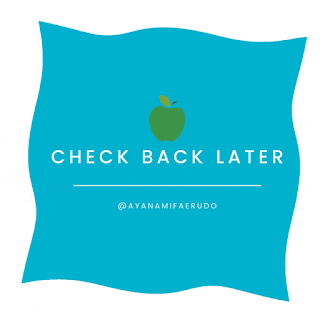What the Bookternet Can (and Can't) Do for You
So I went to an event on February 10 at Random House in NYC about the whole giant enchilada of online bookish things that Rachel Fershleiser has dubbed The Bookternet and describes thusly: "[It's] your dream publishing party, but you're invited no matter who you are or where you live. You just come on in, and there's The New Yorker, and there's Knopf, and there's Neil Gaiman, and there's your favorite lit mag and your favorite bookstore, and you can discover them, and they can discover you."
As an author and reader, that sounds really great. And yes, getting through the door is easy. No bouncers, no velvet ropes, no guest lists. The problem is that you can end up standing alone in the corner, chewing sadly on stale pretzels as vibrant and fascinating conversations go on around you. Or worse, wandering the streets outside, wondering which door to knock on.
So here's a few takeaways from the very smart and funny panellists, who included Rachel, now head of publisher outreach at Tumblr (@rachelfersh); Kevin Nguyen, editorial director at Oyster (@rknguyen); Rebecca Joines Schinsky, director of content and community engagement for Riot New Media Group (@RebeccaSchinsky); and Clive Thompson, a contributing writer for The New York Times Magazine and Wired, and the author of Smarter Than You Think: How Technology is Changing our Minds for the Better (@pomeranian99) .
Tip #1: Be Useful
This may be obvious, but I guess it bears repeating. Yes, promoting our work is fine, but to build (or join) a real community, we also need to think about sharing things that are fun and silly and novel and interesting. Clive, who has about a gazillion Twitter followers, shared an amusing story about how he bought a telescope for his son's birthday but the delivery date got screwed up and he ended up going on an extended Twitter rant about it. The result? Lots, and I mean lots, of unfollows. There's a lesson here. Let's heed it.
Tip #2: Be Patient
Don't be afraid to take risks and try new things, but set reasonable expectations and look at online outreach as something you're in for the long haul, rather than grasping for immediate results. For example, it's impossible to say how many books you've sold as a direct result of Twitter or Facebook or whatever, but the presence and exposure you get from those platforms is very real and it gains momentum over time.
Tip #3: If You Build It, They Will Come…Yeah, Not Really.
Rachel compares this to seeing a great party going on across the street, and instead of walking over and introducing yourself, you stand in your front yard waving and yelling, "Hey everybody, why don't you come to my house!"
In other words, find out where your audience/community is already hanging out and go to them. You can build a fabulous new platform, but you'd better be clear about what you're offering that people don't have at the existing one or you're pretty much guaranteed the soothing sound of crickets (and not much else).
This means taking the time to listen to the conversations that are happening now, in blogs and chatrooms and Goodreads and places like Bookriot, and be responsive to the organic needs of the community, rather than trying to impose your own agenda. That earns trust, and makes people a lot more likely to buy what you're selling when the time comes to pitch it.
The happiest takeaway from the panel is that more people are reading now than ever before, and despite the shrinking physical shelf space in honest-to-god bookstores, there have never been more opportunities for writers and book lovers and small publishers to connect with each other.
A generation ago, continent-sized storms called hypercanes caused the Earth to flood. The survivors were forced to retreat deep underground and build a new society.This is the story that sixteen-year-old Jansin Nordqvist has heard all of her life.Jansin grew up in a civilization far below the Earth’s surface. She’s spent the last eight years in military intelligence training. So when her parents surprise her with a coveted yet treacherous trip above ground, she’s prepared for anything. She’s especially thrilled to feel the fresh air, see the sun, and view the wide-open skies and the ocean for herself.But when raiders attack Jansin’s camp and take her prisoner, she is forced to question everything she’s been taught. What do her captors want? How will she get back underground? And if she ever does, will she want to stay after learning the truth?
Kat Ross was born and raised in New York City and worked several jobs before turning to journalism and creative writing. An avid traveler and adventurer, she now lives with her family—along with a beagle, a ginger cat, and six fish—far enough outside the city that skunks and deer wander through her backyard.

Grand Prize: Kindle Paperwhite with custom cover, preloaded with Some Fine Day
Second Prize (2): Signed copy of Some Fine Day
Third Prize (2): CD audiobook of Some Fine Day
This contest runs from February 7 to March 7.





































No comments:
Post a Comment